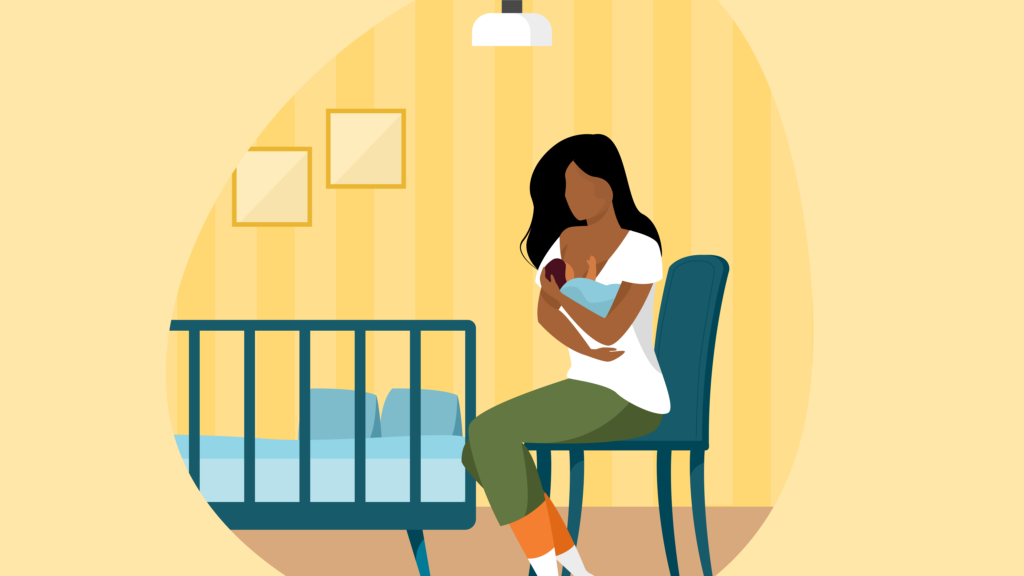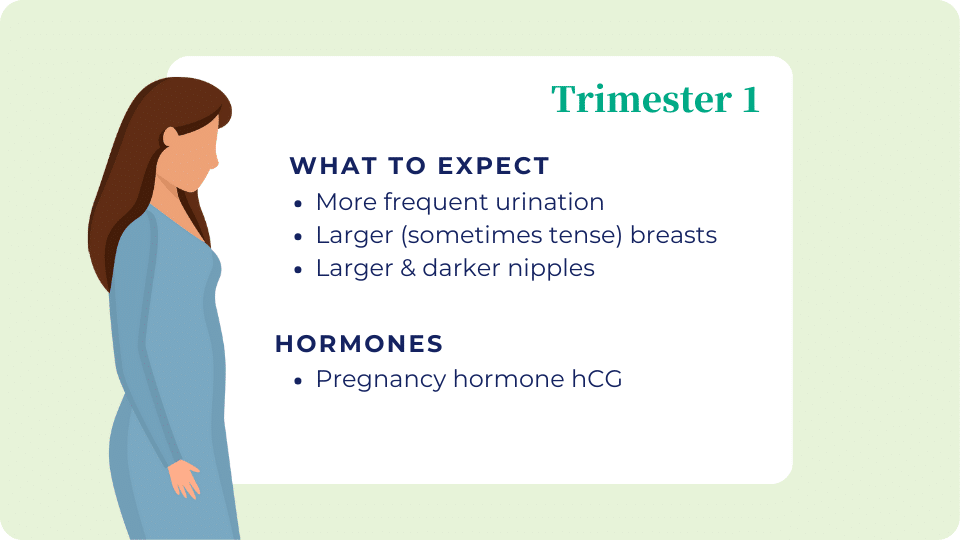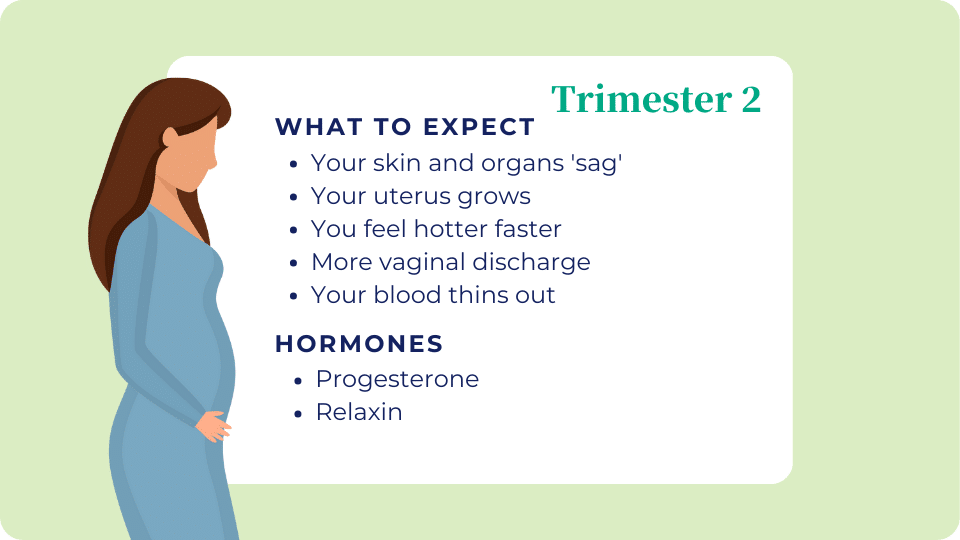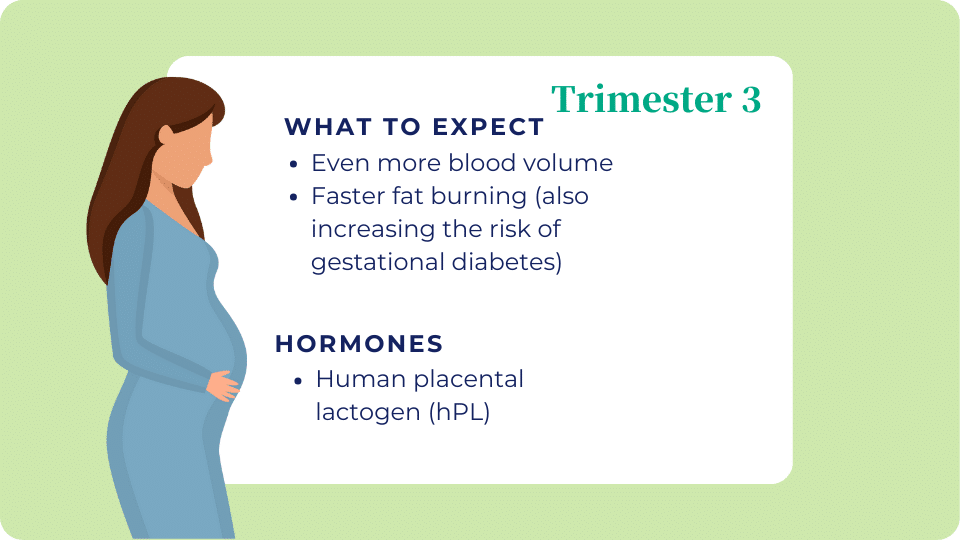Back strain
Your growing belly can cause you to walk backwards, putting an extra load on your back. If you experience this, try the following tips or visit a physiotherapist.
1. Pay attention to your posture
• Stand quietly and place your feet hip-width apart.
• Distribute your weight over both feet. Perhaps move back and forth a few times to get a good feel for where you are leaning your weight.
• Keep your knees slightly bent.
• Now tilt your pelvis to a neutral lower back position.
• Let your arms hang relaxed. Rotate your shoulders in a few circles. Eventually, your shoulders may hang low and slightly back.
2. Stay active
Your growing belly puts more stress on your back muscles and stretches your abdominal muscles. This creates an imbalance between the abdominal and back muscles. Therefore, take care of your abdominal, pelvic floor and back muscles during your pregnancy. Especially during the first two semesters regarding abdominal muscles and during the third semester regarding pelvic floor and back muscles:
• Do relaxing exercises, such as pelvic tilts on a sit-up ball (forward and backward, sideways, circles).
• Wear sturdy, comfortable shoes.
• When standing up from lying down, come onto your side first, then use your hands to push yourself up.
• Lift from your knees.
A pregnancy physiotherapist and/or a pregnancy trainer (pre/postnatal trainer) can further help with targeted, appropriate exercises for you.








